The charismatic Humphrey Bogart had a penchant for playing misanthropic characters repeatedly. Perhaps the chain-smoking screen legend borrowed somewhat from his personal life when creating loner characters. Bogart seemed like someone who, like contemporary James Cagney, preferred to maintain his privacy. Bogart had a world-weary “negative charisma” that made him iconic to audiences that kept their memories of struggles during the Great Depression. Bogart liked to play the outsider. His character would fit into a Dostoyevsky novel almost perfectly.
Resting on the Edge of the Fog of War
In To Have and Have Not (1944), Bogart takes on the role of Harry Morgan, someone who wants to be left alone but finds himself drawn into “everyone else’s” drama. It is hard to avoid drama when you situate yourself in a country directly affected by World War II. Even though the Morgan character wants to exist outside of everything, he can’t. An adventure film with borderline film noir elements and many Dostoyevsky-style underpinning won’t let him.
To Have And Have Not isn’t a classic noir film. Essayists and other film critics may suggest it is more of a hybrid war/romance subset of melodramas. Film noir elements do find prominence in the motion picture, as do themes common in Dostoyevsky works of existentialism. These seemingly disjointed elements weave their way into the film as the narrative progresses. In the same vein, misanthropic loner Harry Morgan sees events play out randomly until they bring a coherent focus to his life.
The faux Trotsky quote, “You may not be interested in war, but war is interested in you,” illustrates the dilemma Bogart’s Harry Morgan finds himself. And it does so literally, not figuratively. The down-on-his-luck fisherman finds himself caught between Resistance revolutionaries and Vichy France loyalists in Martinique. Morgan, like so many existentialist characters in novels and films, doesn’t want to be bothered. His involvement in helping Resistance members comes strictly from hunger. He’s broke, and he needs money, desperately. Moral ambiguity emerges.
To Have Themes from Dostoyevsky
Words from Notes from the Underground fit with the Morgan character, “I couldn’t make myself anything … neither a scoundrel nor an honest man, neither a hero nor an insect”. Morgan isn’t the complete misanthrope that The Underground Man is, but he’s teetering on the edge of becoming an unrepentant outsider.
In his essay for The Guardian, “Baddies in Books: Dostoyevsky’s Underground Man”, Juliet Jacques makes an intriguing assessment of the title literary character: “He labels himself an ‘ineffective, irritating windbag’, but he would prefer to be this than a man of deeds: these people may set the terms for ‘good’ and ‘bad’ character, but they are stupid and limited.”
Bogart’s Morgan character never falls to the misanthropic depths of Notes from the Underground’s lead antihero, but he shares the idea of not being a “man of deeds.” Morgan does what he does to get by in the world. His attitude shows he has little regard for society and has little use for it. While the Underground Man may hide in his dwelling, Morgan takes to the sea. Society exists on land. The sea metaphorically presents an environment outside of society. While not the Underground Man, Morgan is the Man at Sea, a person who also prefers existing outside of it all.
While the Dostoyevsky themes aren’t overt, they do exist within the framework of To Have or Have Not’s narrative.
Cinematic Influences and “Borrowed” Narratives
To Have and Have Not often receives criticisms for its similarities to Casablanca (1942). Any honest assessment of To Have and Have Not must admit the film is a borderline remake. Harry, however, is no Rick. At least Rick was successful in business. Harry struggles when chartering out his fishing boat and suffers the indignity of dealing with clients cheating him. Morgan’s considered a man of no status and possessing no threat. Short him on money. There’s no consequence.
And he has the perfect job for an existentialist nobody. The boat reflects a play on the existentialist theme that “No man is an island unto himself.” Morgan allows the fishing boat to serve as a makeshift personal island. He lives on the boat, making it his home. Morgan takes the boat out on the water to earn a living. And in both scenarios, he has as little to do with people and their cultures. We get the impression Martinique is merely a temporary stop. Morgan would be off to somewhere else, but the shadow of World War II gives him caution to remain safely in one place until that place ceases to be safe. There’s a noirish component present here. Where in the dark world of film noir is anyone safe? The concept of being an island onto oneself ends up dismissed here because no one can escape interactions with others, good or bad. People tend to become interested in you at some point.
The noir elements begin to creep as things go wrong for Morgan. The man who owes him money takes a bullet from Vichy-controlled police. The broke Morgan must now take the dangerous job of transporting someone for the Resistance. You can’t build a wall around an island. Others can land on its sand.
So, the boat has to leave under cover of night. We’re now going from existentialism to noir territory.
Light, Shadows, the Sea, and Human Nature
To Have and Have Not mostly takes place in bright daylight, where no one is safe under the iron rule of the corrupt Vichy-controlled police. Ironically, safety exists in the dark, as evidenced by the boat passage scene. Escapes take place in a shrouded mix of fog and shadows. When the film’s visual style shifts to noir-like, we find a world preferable to the one appearing in daylight, daylight that reveals a nation under occupation.
The film might not present an entirely visual noir perspective, but the noir elements remain on the periphery. The Harry Morgan character, in particular, maintains a noirish edge due to his “lonely man” nature. Morgan turns “hero” reluctantly and strictly from hunger. He’s broke, and he needs money. So, he sides with the Resistance. While money motivates him, he eventually succumbs to the cause and becomes reborn as a “good person” guided by the love of Lauren Bacall’s character, his love interest. Her character, nicknamed “Slim,” further breaks down Morgan’s isolation. Being lonely isn’t appealing, preferable, or desired, but it can be forced.
Morgan’s turn to heroism may be strictly from hunger, too. His attraction to Slim leads him in the direction of bravery, but the actions could come with a self-centered component. In his heart, he likely despises the lonely, isolated world in which he lives. Take that as another Underground Man-style characterization.
Moral Clarity and an Escape from Isolation
An unasked question looms when examining the motivations of the down-and-out Morgan, “What if the Vichy offered him money?” Morgan stresses he takes no sides, so the possibility exists he would align, temporarily, with the Nazi’s associates.
At varying points in the film, we see examples of his moral code and personal ethics. However, he comes off as a man walking a moral tightrope. He can continue straight or fall. He could align with either side for the right price.
Slim’s arrival creates a magnet to a moral center for Morgan, although she isn’t a saintly character by any means. Ironically, her character isn’t drawn to the Resistance out of any moral obligation, either. Both characters seemingly fall into the “good” side of things by mercifully self-serving chance.
Still, neither character comes off as villainous. Slim may steal, and Morgan might be short-tempered and money-driven, but they don’t embody the thuggish, brutal behavior of the Vichy. Morgan would never put up with violence against women, as noted in a pivotal scene. Since he puts his life on the line to save then-stranger Slim, it becomes plausible to see him become more courageous later in the film. Consider that a nice screenwriting touch.
Regardless, a nihilism exists surrounding both characters. Slim seems disinterested in things outside of her plight while Morgan has long walked away from the world. Bogart’s Harry Morgan sees himself as an inconsequential player in the world’s massive stage. Nothing he does affects the outcome of the war. Nor does anything he declines to do. While a moral person at his core, he seems resigned to self-defeat that allows him to justify amoral, but not immoral, behavior.
Such is the dark moral ambiguity of the film noir. The stark good and evil conflict found in horror films, westerns, and other tales don’t appear in film noir, a world where things are most bleak in the world and the soul. No one can stay on a purely moral course as events and the world, itself, draw even good people away from it.
In the end, the film moves away from noir and Dostoyevsky themes and embraces the more positive ending of the adventure film. While upbeat, the previous realism in the film goes away. But the preceding darker, more brooding themes make a greater impact.
*****
VM Productions is happy to announce that the pre-production of our feature length project Crime & Punishment, LA – following by the shoot of the movie – is scheduled to begin on Tuesday, January 7th 2020 in Los Angeles! http://www.vmpfilms.com/#August_
Crime and Punishment, LA, represents the third chapter of VM Productions ambitious Dostoyevsky-LA Project (following the completed movies Shades of Day & Notes From the New World) – a re-envisioning of Dostoyevsky’s classic novel transported to LA during the riots of 1992. C&P, LA -currently in the active development- was selected, as the winner, for the European Co-Production Matchmaking Program at SXSW –https://bit.ly/324e5kD
*****
Want to know about VM Productions‘ Dostoyevsky-Los Angeles Project and about the films we make? Want to participate in our projects? Sign up to get tickets to the premiere of our movie (currently in post production), Dostoyevsky Reimagined-BTS and grab our FREE e-books !
 |
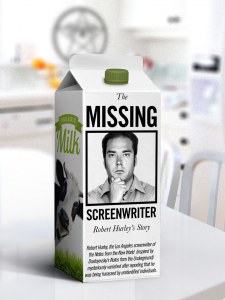 |
Follow us through our social media on
Twitter, Facebook, Pinterest, Tumblr, Instagram, Goodreads.

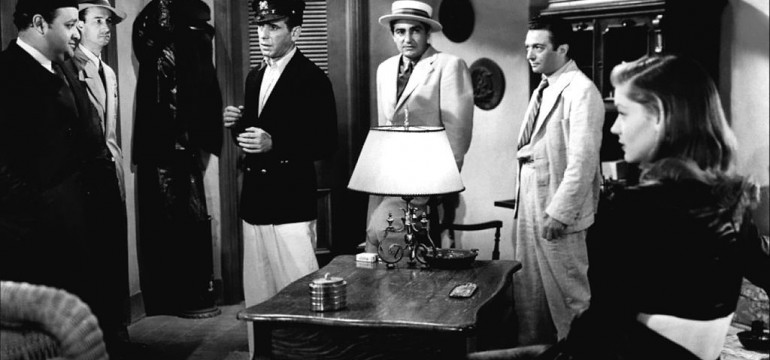
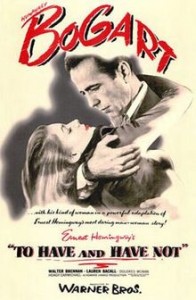
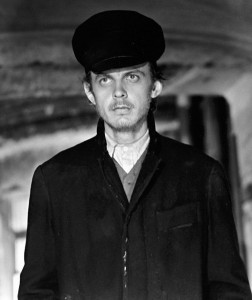
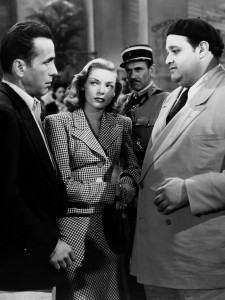
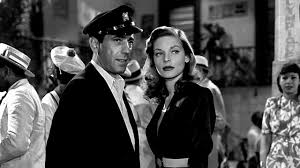
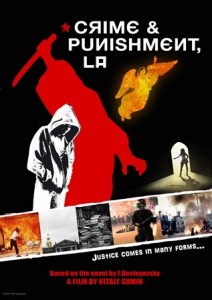

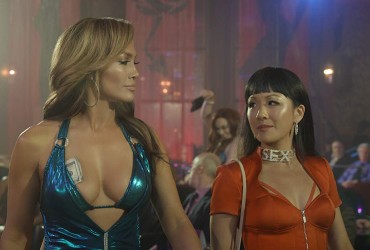
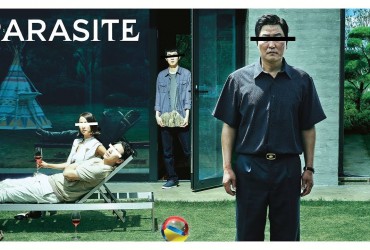


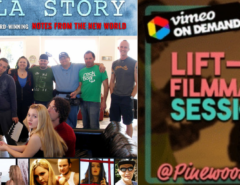
Leave a Reply